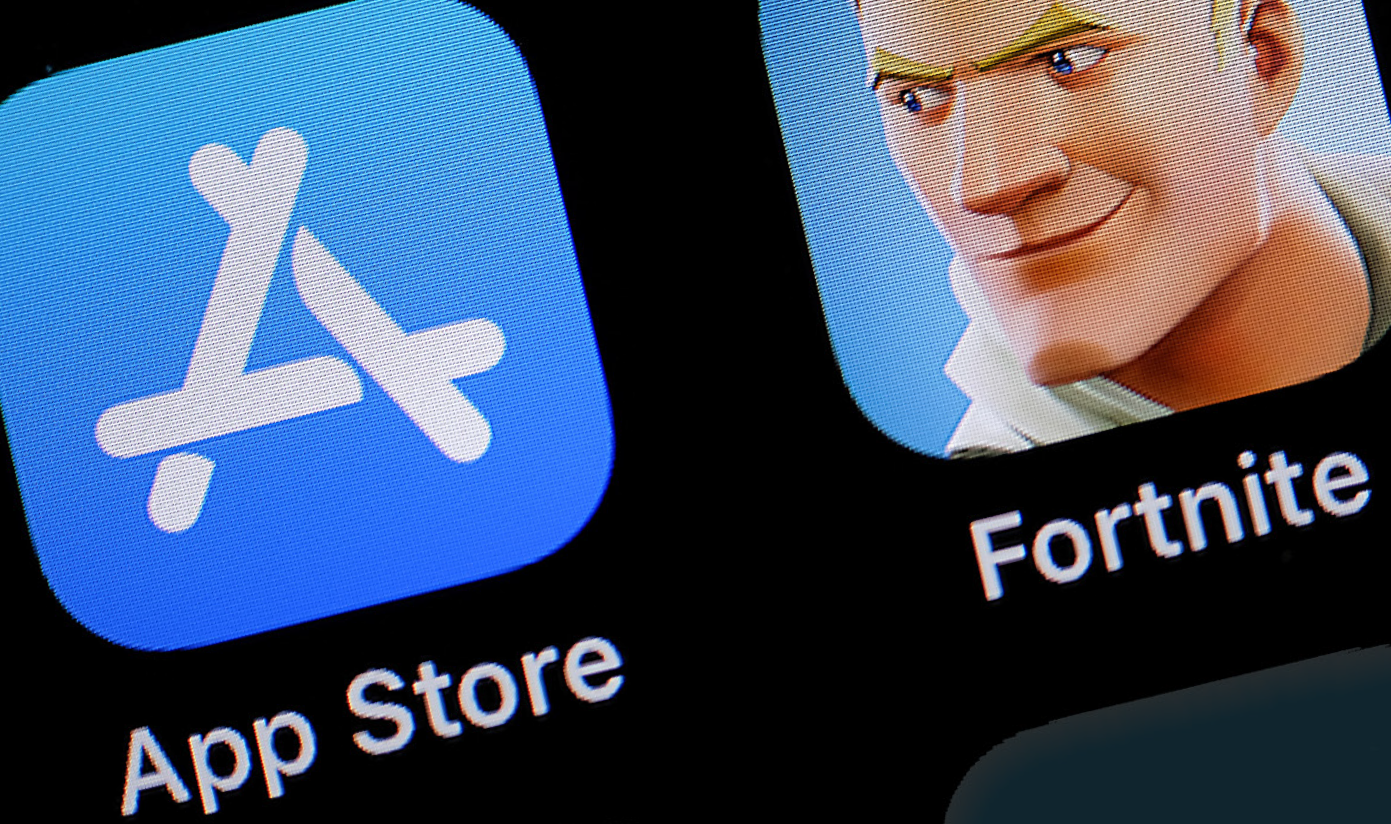에픽 게임즈와 애플의 혈투, 그리고 그 판례
변화하는 앱스토어의 쇄국 정책
MLex report - Epic Games vs. Apple 2

재판 결과
미국 연방 판사는 애플이 독점 기업은 아니지만 앱스토어의 규칙과 관행을 바꿔야 한다고 판결했다.
판사는 에픽 게임즈에게 포트나이트 플레이어를 대체 인앱 결제 시스템을 만든 것에 대한 계약 위반 손해배상을 애플에 지불하도록 명령했다. 표면적으로는 애플이 승리하였다고 볼 수 있지만 오클랜드 법정 밖에서 일어날 도전 과제와 그 변화는 승리라는 단어를 다시 생각하게 만든다.
에픽 게임즈가 원하는 것
소송 당시, 에픽 게임즈가 애플에게 원했던 것은 두 가지이다.
1. 애플의 기업경영 운영 체제인 앱스토어를 대체하는 타 스토어 개방
2. 디지털 구매에 대한 수수료 30%를 징수하는 Apple의 인앱 결제 메커니즘 우회
앱 스토어의 변화
"성공은 불법이 아니다."
법정에 섰던 이본 곤잘레스 로저스 판사는 185페이지 분량의 의견서에 "법원은 애플이 55% 이상의 상당한 시장 점유율과 엄청나게 높은 이윤을 누리고 있다고 판결했지만, 이러한 요소만으로는 독점 금지 행위를 보여주지 않는다"라고 말했다. 그 이후 "Apple의 행위는 전통적인 독점 금지법의 범위에 속하지 않지만, 그 행위는 정당화되지 않은 특정 반경쟁 관행에 대한 초기 독점 금지 위반의 범위에 속한다."라며 그 의견을 더 했다.
이로 인해, 애플은 더 이상 앱 개발자가 고객을 App Store 외부의 결제 옵션으로 안내하고 '앱 내 계정 등록을 통해 고객으로부터 자발적으로 얻은 연락처를 통해 고객과 소통하는 것'을 금지할 수 없다. 앱스토어 규제는 이미 판결에 이르기까지 일부 규제를 완화했지만 한국, 유럽, 일본 등의 입법자들로부터 큰 도전에 직면해 있다.
***재판에 대한 독점 보도와 함께 처음 발행된 MLex 특별 보고서는 판결의 결과에 대한 자세한 설명을 제공하도록 업데이트됩니다.
*** Original Editor's Letter***
Editor’s Letter
Lewis Crofts
MLex Editor-in-Chief
There was always lots at stake. No less than the legendary iPhone platform and the lucrative gaming market. But the impacts were broader: Anyone wanting to do business on the iPhone was watching. If I sell something, how much of that sale am I going to get to keep?
Epic Games wanted two things: to open up Apple’s operating system to alternative app stores and to bypass Apple’s in-app payment mechanism that collects its 30 percent commission fee on digital purchases.
Apple was relying on two broad lines of defense: that it doesn’t operate a monopoly through its iOS operating system, and that security and privacy benefits justify its exclusive control of app distribution through the App Store.
After weeks of California court drama the judgment dropped on Friday, Sept. 10. And it largely validated Apple’s main arguments. But Judge Yvonne Gonzalez Rogers still ordered Apple to remove rules that stop developers advertising alternative payment methods within their apps as well as rules that stop them reaching out to their customers outside of the App Store.
It’s unclear at this stage exactly what impact that will have on Apple’s revenues, and whether the company will ask an appeals court to put that injunction on hold and ultimately overturn it.
But the case has become a symbol of the 21st century’s struggle to use antitrust law to bring Big Tech to heel.
While Apple can claim victory in the litigation, its challenges are numerous and distant from the Oakland courtroom. It was already softening some of its restrictions leading up to the judgment, but it is facing major challenges from legislators in Korea, Europe, Japan and elsewhere.
And news of Apple’s court victory didn’t deter a bipartisan group of US legislators in Congress, who said it only underlined the need for pending bills which would unwind the power of both Apple and Google over the app ecosystem.
Epic Games says it has paid Apple $6 million in damages for breaching its contract, and is pushing — unsuccessfully so far — to have its developer account restored in South Korea so that it can benefit from the new law there.
It has also confirmed it is appealing the ruling to the US Court of Appeals for the Ninth Circuit. That creates an interesting dynamic for Google, which faces similar antitrust lawsuits for monopolizing the Android app ecosystem from Epic Games and US state attorneys general, among others. With the eyes of regulators, rivals and judges all trained on Apple, the California case has given a glimpse about how each side’s arguments will play out.
This MLex Special Report, first published in May with exclusive blow-by-blow coverage of the trial, has now been updated to feature detailed commentary on the fallout from the ruling.
INSIGHT
By Amy Miller, Mike Swift & Khushita Vasant
Published on Sep. 10, 2021
Apple not a monopolist but must change App Store practices, US federal judge rules
Apple is not a monopolist, but the iPhonemaker will have to change its business practices, US District Judge Yvonne Gonzalez Rogers found three months after its trial with Fortnite maker Epic Games concluded. Apple is engaging in anticompetitive conduct under California’s competition laws, Gonzalez Rogers said, and she issued a permanent injunction that will force Apple to make significant changes to its App Store. Epic meanwhile“overreached,” the judge said, and ordered it to pay Apple a fee for breaching its contract.
Apple is not a monopolist, but the iPhonemaker will have to change its business practices, US District Judge Yvonne Gonzalez Rogers found three months after its trial with Fortnite maker Epic Games concluded.
“While the Court finds that Apple enjoys considerable market share of over 55 percent and extraordinarily high profit margins, these factors alone do not show antitrust conduct,” she said in a 185-page opinion. “Success is not illegal.”
But Apple is engaging in anticompetitive conduct under California’s competition laws, Gonzalez Rogers said, and she issued a permanent injunction that will force Apple to make significant changes to its App Store business model.
Apple can no longer prohibit app developers from directing customers to payment options outside the App Store and from “communicating with customers through points of contact obtained voluntarily from customers through account registration within the app,” she said.
“While Apple’s conduct does not fall within the confines of traditional antitrust law, the conduct falls
within the purview of an incipient antitrust violation with particular anticompetitive practices which have not been justified,” she said.
Epic was seeking more substantial changes, but “ultimately, Epic Games overreached,” Gonzalez Rogers concluded. The judge ordered Epic to pay Apple a fee for breaching its contract with Apple and creating an alternative in-app payment system for Fortnite players.
Epic CEO Tim Sweeney said that the decision isn’t a win for developers and that he would continue to fight for “fair competition among in-app payment methods and app stores for a billion consumers.”
“Fortnite will return to the iOS App Store when and where Epic can offer in-app payment in fair competition with Apple in-app payment, passing along the savings to consumers,” Sweeney said.
Apple reiterated in a statement that it hadn’t been found to have violated any antitrust laws, although
it failed to mention its violation of California’s Unfair Competition Law.
“As the Court recognized ‘success is not illegal,’ “ the company said. “Apple faces rigorous competition in every segment in which we do business, and we believe customers and developers choose us because our products and services are the best in the world.”

산업 별 규제 정책, 소송에 대한 정보를 얻는 법
MLex는 다양한 분야의 규제 정책, 시행 및 소송 개발에 대한 미래지향적인 시장 통찰력, 분석 및 해설을 제공하는 뉴스 서비스입니다. MLex가 주로 다루는 토픽은 독점 금지 및 합병 허가, 데이터 개인 정보 보호 및 보안, 기술 및 통신 규제, 뇌물 방지 및 부패 방지, 금융 서비스 규제, 에너지 및 기후, 그리고 국제 무역을 포함합니다. MLex만의 콘텐츠는 14개 국제 지국에 걸쳐 90명 이상의 기자로 구성된 네트워크에 의해 개발됩니다. 세계 유수의 로펌, 헤지펀드, 자문 회사 등 많은 기업들이 전 세계적으로 어떤 규제 변화가 일어나고 있으며 이것이 비즈니스에 어떤 영향을 미치는지에 대한 분석 도구로 MLex 콘텐츠를 사용하고 있습니다. 이들은 규제 변화에 의해 야기되는 기회를 활용하고 위험을 완화할 수 있는 유리한 위치에 있는지 확인하기 위해 당사의 보고에 의존하고 있습니다.
MLex는 업계 전반에 걸쳐 기업이 직면하고 있는 데이터, 개인 정보 및 보안 문제에 대한 규제 뉴스 업데이트를 보고하는 데 주력하는 전담 글로벌 팀을 보유하고 있습니다. 규제당국과 많은 관할권의 국회의원들은 현재에도 보안 문제에 대해 감시하기 위한 법적 틀을 만들고 있습니다. 이에 발맞추어 기업들도 컴플라이언스를 개발하는 방식을 형성하고 있습니다. MLex는 새로운 규정이나 법률의 채택, 구현 및 시행에 이르기까지 전체 데이터 개인 정보 보호 및 데이터 보호 프로세스를 포괄합니다.
전 세계에 전문 기자들이 있는 MLex는 기업이 직면한 규제 리스크를 식별하고 분석하는 데 주력하는 세계 최고의 뉴스 기관입니다. 기술 및 온라인 플랫폼 분야만큼 리스크가 커지는 곳은 없습니다. 또한, 데이터 개인 정보 보호와 보안에 대한 우려는 글로벌 무역 관계, 인수 합병 및 미국과 중국 간의 계속되는 지정학적 경쟁에도 점점 더 영향을 미치고 있습니다. 데이터, 개인 정보 보호 및 사이버 보안은 규제, 시행 및 준수의 새로운 주요 전선을 나타냅니다. MLex는 수년 동안 최신 데이터 개인 정보 보호 및 기술 부문인 GDPR 및 CCPA의 보호 개발에 대한 규제 뉴스를 통해 이 신흥 위험 영역을 다루는데 앞장서 오고 있습니다.
아래는 MLex Report에서 다루었던 독점금지법에 관련된 소송인 에픽게임즈와 애플 간의 법정 공방의 전문입니다.
애플이 어떻게 시장 독점 의혹을 피해갈 수 있었는지 알아보고 싶으시다면, MLex Report를 다운 받아보세요!





